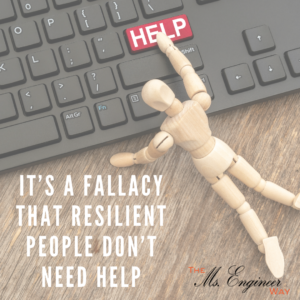We know that resilient behaviors can be learned – resilience is like a muscle that you need to work. You get knocked down, get back up again and flex that muscle a little more each time. I’ve written about building resilience before and it’s once again front of mind for me during graduation season and also in the work I’m doing with organizations who want to ensure their people are equipped for leading change.
To achieve sustainable success, you have to be able to persevere when the world is challenging and uncertain. I’m mindful that our new graduates are entering a world of work unlike any other; they need to be prepared for setbacks and they have to be flexible. That’s why I invoke the SOS approach to building resilience.
Self-care
Optimism
Support
Let’s break it down.
SELF-CARE
Much is said about the importance of practices like getting a massage, visiting a spa, or other personal health and wellness options. These are indeed important, but very often our self-care is less grandiose than a day spa (although I did recently enjoy my Mother’s day spa gift!). It is an opportunity to enjoy seclusion (being intentionally alone), as opposed to isolation (which is unintentional and lonely). We care for ourselves by being kind to ourselves, paying close attention to our commitments, and maintaining healthy boundaries. We also practice self-care when adopting healthy sleep, eating, and exercise habits.
When life gets interrupted, these daily habits can slide. But a daily (OK, almost daily!) self-care routine will help you minimize the effect of life’s curveballs. This resource from Mental Health Awareness month has great tips.
Right now I’m balancing a graduating senior, business demands (including professional association commitments), and ensuring I stay connected to family and friends. This is an incredibly busy season, but I’m very protective of my peace.
Quick tips:
- Commit to YOU daily – start your morning with water, stretching, and reflection
- Break up with busy – over-committing is the root cause of many SOS signals
- Read inspirational books – my favorite is the bible. Your attitude will reflect what you read.
OPTIMISM
Resilience is rooted in optimism – the belief that things will work out, that next time will be better; you’ll make that shot or close the deal. Being optimistic does not mean ignoring negative things. It’s about reframing your perspective and actively looking for the positives – even turning a setback into an opportunity. Being grateful is another way to increase optimism and both have powerful psychological benefits that help build resilience.
Quick tips:
- When you’re feeling challenged, reflect on past wins – talk yourself up to yourself!
- Be realistic with your expectations
- Learn to praise progress as you work toward your goals
SUPPORT
Do you know your support networks? In the workplace, your place of worship, your health practitioners, friends and family, mentors and coaches. Support surrounds us but a lot of the time we don’t access it.

It’s a fallacy that resilient people don’t need help. It’s actually the opposite. People who have rebounded, recovered, and restored themselves usually do it with the help of others. I had to learn to break away from this myth myself after adopting an attitude of extreme self-reliance. But as God began to heal my heart, I became much more willing to accept and even seek out support.
I’ve shared this important concept with HR leaders and CEOs to help them understand that even their strongest, most resilient leaders need support. It’s important that they foster an environment that conveys empathy and encourages compassion. The key to dealing with burnout is to prevent it in the first place.
My beloved Knock-Out Roses that I’ve talked about before were struggling to recover from the winter freeze. I knew they were resilient and had seen them recover before. But this time they needed more help than in the past. At the recommendation of our lawn service man, I added coffee grinds to the soil. This was just the boost they needed, and they flourished in the spring!
Quick tips:
- Acknowledge you need support – that’s the first battle
- Refer to your employer EAP (Employee Assistance Program) – often there are free counseling services available
- Ask trusted friends – avoid isolation
Use SOS, so you won’t have to send an SOS.






